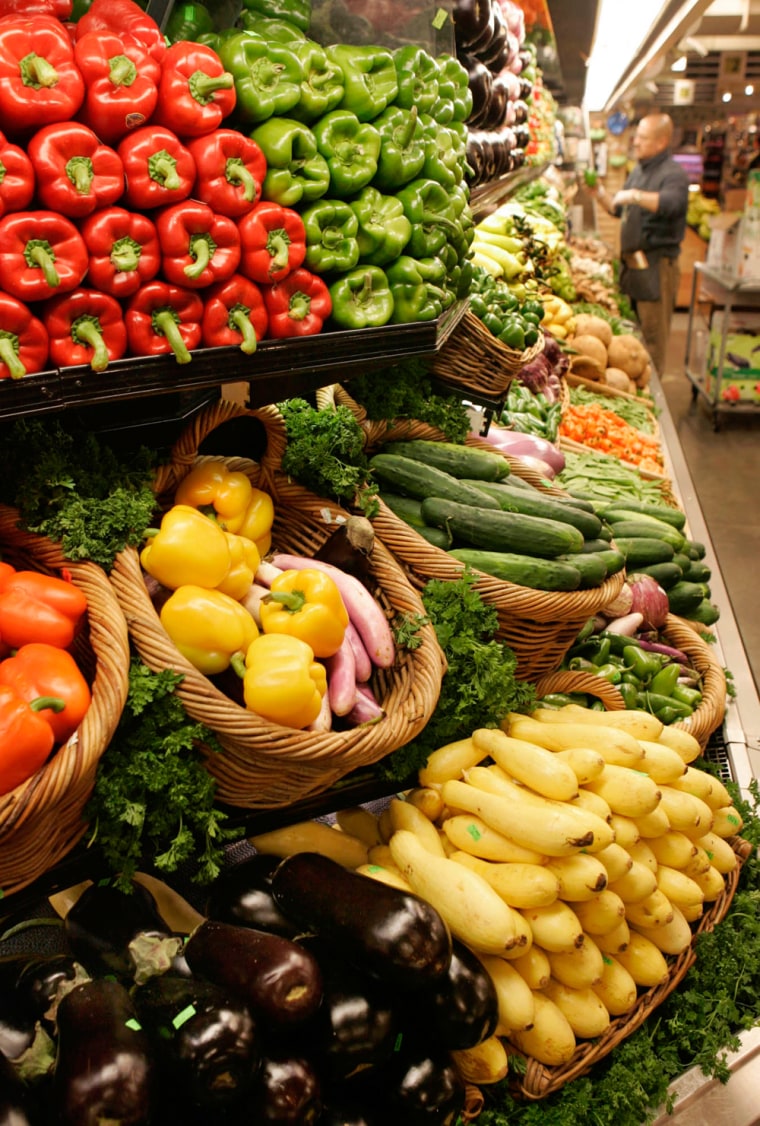Once upon a time we used to eat food simply because we liked it.
Now we buy into diet plans such as Atkins and South Beach, and fill our grocery carts with fish, almonds, orange juice fortified with Vitamin D and other foods we think are healthy. Then, on those special days when we want to treat ourselves for being good, we seek out foods marketed as sinful and indulgent. Double-fudge brownies, anyone?
Somewhere in between, however, people are losing touch with the basic joys of the table. To blame? Our Puritan roots, perhaps. Or, new information about the nutrition-related causes of illnesses like heart disease. Then there's the increasing influence of a massive diet industry as well as food manufacturers trying to find new ways to catch our eye.
"It's unfortunate, not only because you end up getting less pleasure out of the meals but also because it's not good for your health," says Barry Glassner, author of the new book "The Gospel of Food: Everything You Think You Know About Food Is Wrong." "You get more out of a meal physically and emotionally when it's a pleasure to eat."
What’s more, in chasing down a healthy diet, Glassner says, Americans have accepted as fact a number of myths and half-truths that need debunking.
Facing facts
In his book, for instance, Glassner asks doctors to state the percentage that a person's diet alone contributes to particular diseases. For all that's been said and written about topics such as the connection between a diet high in saturated fat and heart disease, the doctors, published authors and experts on fields such as cardiology, had trouble getting specific. Glassner ultimately found that for people with medical conditions like diabetes and heart disease, maintaining a special diet is a good idea. But for the vast population, making radical dietary changes in the hopes of living longer as a result is difficult, if not impossible.
"The evidence just isn't clear," he says, "about which changes you'd make beyond the good advice your mother gave you — to eat more fruits and vegetables."
Another myth that needs to go is Americans' belief that fresh is always best.
Our grandparents may have sought out canned and preserved foods because of their safety and convenience, but we think if it's preserved or frozen, it's inferior, Glassner says. The same thinking applies to foods (think trail mix) that are advertised as natural versus processed. So much so that we're willing to pay more for foods we assume have higher nutritional values.
Blame marketers, says Glassner, citing the placement of pictures of pastoral fields on labels containing the words "fresh" and "natural." But, while the products present a nice fantasy, the reality can be quite different.
Flash frozen vegetables tend to retain their nutrients better than fresh vegetables, which age during transportation and the time it takes to get to your table. Chefs also repeatedly told Glassner that some food's flavors, like those in salsas, tomato sauces and chutneys, emerge days or weeks after they've been prepared. And that trail mix may just contain processed high-fructose corn syrup.
Trendy takes
So why do Americans fall for these and other myths? Glassner says as a country we're prone to fads. What's more, the food industry is always looking to satisfy consumers' desires, whether we crown oat bran, bunless burgers or, the latest trend, omega-3 fatty-acid-enhanced products, as the new, healthy miracle food.
Glassner's advice for people who want to enjoy eating again is to forget the hot diet craze, stop "swallowing wholesale" promises of every nutritional study and eat well and moderately over the long haul.
"If you follow every fad, you're probably not going to be terribly happy," and maybe even more importantly, Glassner says, "You'll have far less enjoyable meals."
